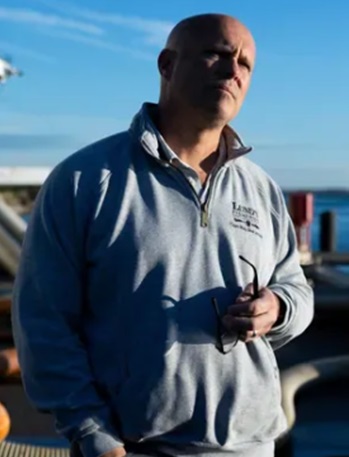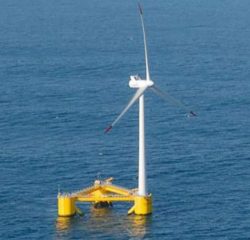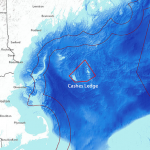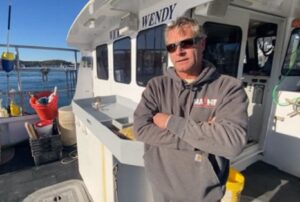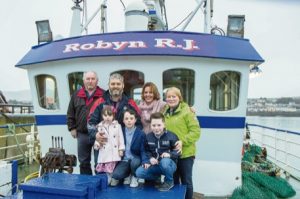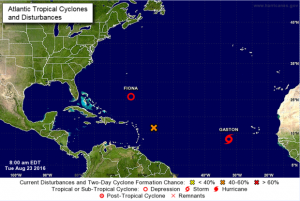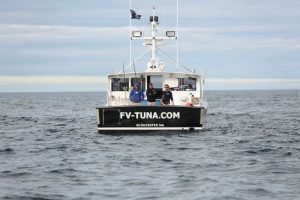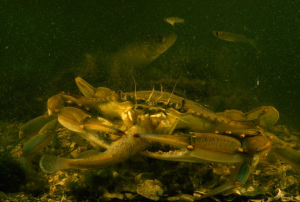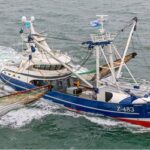Tag Archives: ‘Chevron Deference’
Maine leaders split on environmental regulation ruling by US Supreme Court
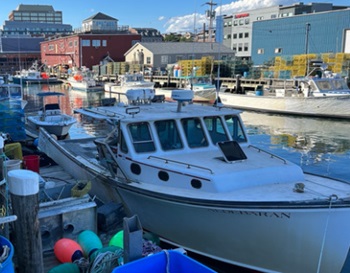 By a vote of 6-3, the Supreme Court overturned the Chevron v. Natural Resources Defense Council ruling from 1984. Governor Janet Mills shared concerns that this decision could impact how federal agencies protect the health and safety of Americans. Maine House Minority Leader Billy Bob Faulkingham, also a lobster fisherman, says this could help in their fight against federal fishing regulations. “This really opens up a whole new avenue for people that feel like they’ve been hurt by the government to challenge that,” Faulkingham said. 5 photos, >>CLICK TO READ<< 09:08
By a vote of 6-3, the Supreme Court overturned the Chevron v. Natural Resources Defense Council ruling from 1984. Governor Janet Mills shared concerns that this decision could impact how federal agencies protect the health and safety of Americans. Maine House Minority Leader Billy Bob Faulkingham, also a lobster fisherman, says this could help in their fight against federal fishing regulations. “This really opens up a whole new avenue for people that feel like they’ve been hurt by the government to challenge that,” Faulkingham said. 5 photos, >>CLICK TO READ<< 09:08
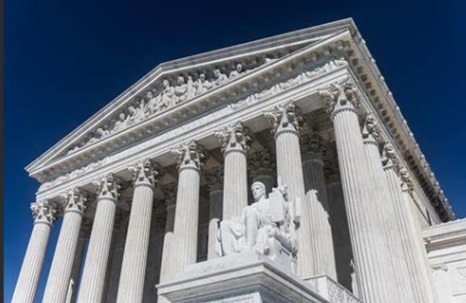
Supreme Court Strips Power from Federal Agencies—Overturning Decades-Old Precedent
The Supreme Court overturned a landmark ruling Friday that gave widespread power to federal agencies, a seismic ruling that has the power to upend how the federal government operates—and delivers a win to conservative groups who long wanted to see the precedent overturned. “Loper Bright Enterprises v. Raimondo” and “Relentless v. Chamber of Commerce” are two linked disputes, both brought by herring fishermen who opposed a federal policy requiring them to pay $700 per day to carry federal monitors on their vessels. The cases more broadly asked the court to overturn “Chevron v. Natural Resources Defense Council,” a landmark 1984 ruling that gave federal agencies broad power to enact regulations by arguing courts should usually defer to agency staff—a precedent that high-profile figures on the right have long wanted to see struck down. more, >>CLICK TO READ<< 10:29
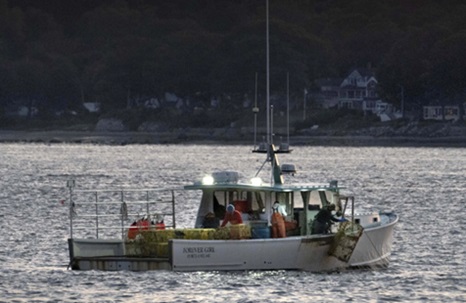
Who Gets to Say What the Rules Are?
Who gets to make the rules in American government? One of the most controversial and important cases before the Supreme Court concerns that crucial question. Congress makes the rules for the federal government in the form of laws. But federal agencies must enforce the law and often must make rules of their own – regulations – to do so. And courts then sometimes must resolve disputes about whether an agency’s regulations are well-grounded in the statutes that Congress produces. About 40 years ago, the Supreme Court tried to make things less confusing by setting some ground rules about who gets to make the rules. The Supreme Court decided to create a rule about rules: It said that if an agency’s rule produced a reasonable interpretation of an ambiguous statute passed by Congress, then courts should defer to the agency. more, >>CLICK TO READ<< 08:08
Cape May fishermen at center of major U.S. Supreme Court case
On Wednesday, the justices heard testimony in Loper Bright Enterprises v. Raimondo. The justices are deciding whether to uphold or overrule the four-decades old Chevron v. Natural Resources Defense Council decision. The justices heard three-and-a-half hours of oral argument this week. Multiple media outlets reported the justices asked questions indicating that the Chevron doctrine is unlikely to remain fully intact. The fishermen are challenging the National Marine Fisheries Service for requiring the herring industry to take on the cost of paying observers. Who is supporting the fisherman and why? The fishermen are represented by the Cause of Action Institute and New Civil Liberties Alliance. Groups such as the Cato Institute, Christian Employers Alliance, and members of Congress such as Sen. Ted Cruz and Speaker of the House, Mike Johnson, have filed briefs in support of the fishermen. more, >>click to read<< 12:15
A group of commercial fishermen have ended up before the Supreme Court
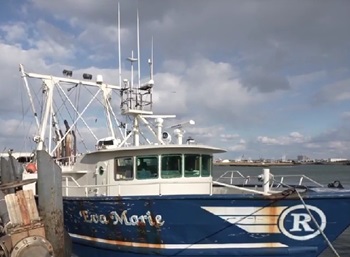 An unforgiving southeast wind cut across Cape May, New Jersey, on a recent Tuesday morning; the 50-mile-per-hour gusts were so strong they created white caps on a section of the bay here that is typically calm. There would be no fishing for Bill Bright and his crew. “We don’t have crop insurance. If the fish don’t show up, there’s no bailout,” the 64-year-old said, standing on the deck of the Eva Marie, an 88-foot-long fishing vessel used to catch herring. As a lifelong fisherman, Bright is used to slow days. But a recent shift in tidal fortunes here has nothing to do with fish and everything to do with the federal government. “What’s at stake for us is our future,” Bright said. For years, fishermen like Bill Bright and his colleague Wayne Reichle have been required to take federal observers on their boats when they set out into the North Atlantic in search of herring. Video , >>click to read<< 19:06
An unforgiving southeast wind cut across Cape May, New Jersey, on a recent Tuesday morning; the 50-mile-per-hour gusts were so strong they created white caps on a section of the bay here that is typically calm. There would be no fishing for Bill Bright and his crew. “We don’t have crop insurance. If the fish don’t show up, there’s no bailout,” the 64-year-old said, standing on the deck of the Eva Marie, an 88-foot-long fishing vessel used to catch herring. As a lifelong fisherman, Bright is used to slow days. But a recent shift in tidal fortunes here has nothing to do with fish and everything to do with the federal government. “What’s at stake for us is our future,” Bright said. For years, fishermen like Bill Bright and his colleague Wayne Reichle have been required to take federal observers on their boats when they set out into the North Atlantic in search of herring. Video , >>click to read<< 19:06
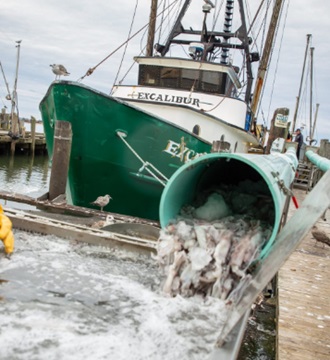
Landmark Legal Battle: Fishermen Challenge Regulatory Overreach Impacting Livelihoods
In a pivotal move, the Supreme Court has accepted a second challenge to the long-standing legal doctrine known as “Chevron deference.” This doctrine, born from a 1984 ruling, grants federal agencies substantial authority in formulating rules and regulations. The case, Relentless Inc. v U.S. Department of Commerce, represents a crucial juncture for Rhode Island fishermen who, along with those in the Loper Bright Enterprises v. Raimondo case, are fervently contesting a federal rule that mandates them to bear the financial burden of federal observers on their boats. >>click to read<< 12:23

When Nuts Write: ‘Chevron Deference’ Attacked By Pence’s Koch-Funded Front Groups Supporting Fishing Lobby
In April, we noticed fisherman Jerry Leeman was impressively adept at anti-offshore wind media relations work, and wondered if he was receiving assistance from professional disinformation operatives. Then last month, we spotted a tell suggesting Leeman was working with none other than Steve Milloy the template for tobacco shills turned climate deniers, to launch his new fishing lobby group. Now, we’ve spotted another clue that Leeman’s career change from the high seas to lobbying for the fishing industry has some big fish on the line. >click to read<, (if you can stomach it.) Lots of links. >click to read from Jerry Leeman< 17:11
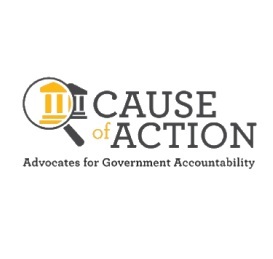
Strong Amicus Support in Fishermen Case Challenging Chevron Deference
New Jersey herring fishermen challenging an unlawful federal regulation at the Supreme Court next fall got a boost yesterday in the form of amicus briefs supporting their case—Loper Bright Enterprises, Inc. v. Raimondo. The briefs were filed by fellow fishermen, professors, small business, industry, legal advocacy groups, public policy groups, and elected officials. A total of 44 briefs were filed by 171 amici, including 18 U.S. senators, 18 U.S. representatives, 27 state attorneys general, and Georgia Governor Brian Kemp. The fishermen are challenging a federal regulation that forces them to pay the salaries of government-mandated at-sea monitors who observe their operations and report to the government. The fishermen argue Congress never granted the executive branch the authority to force them to pay for monitors. >click to read< 16:05






